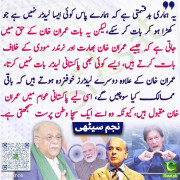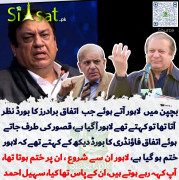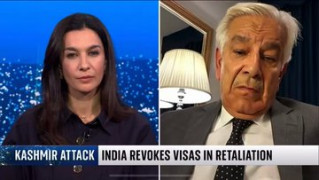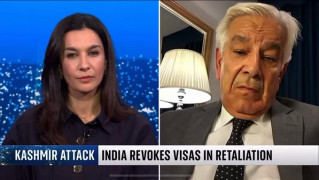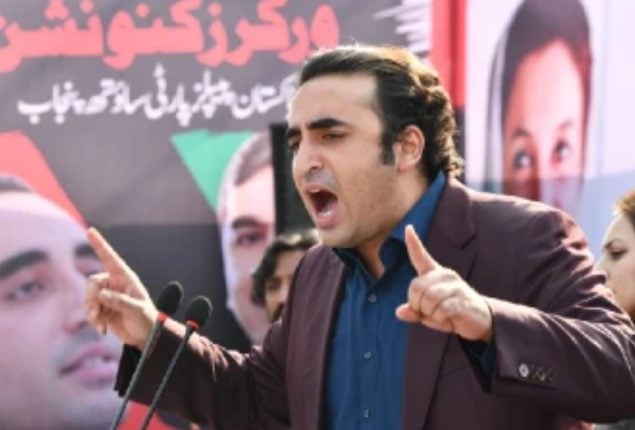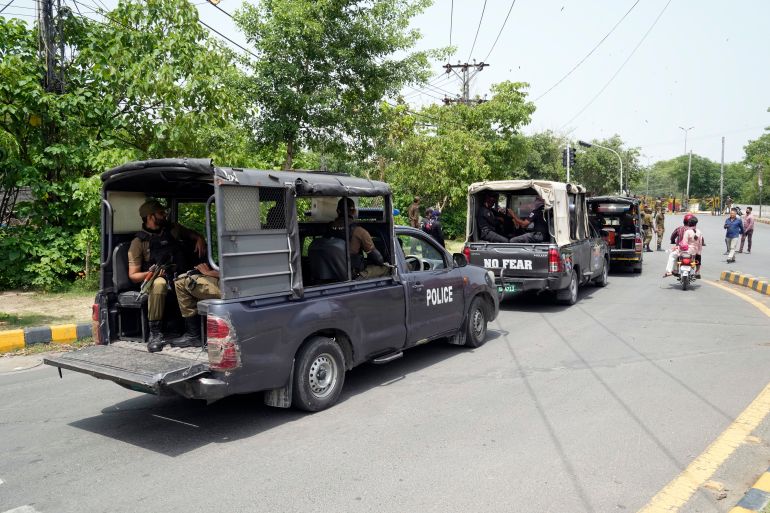Re: Visiting the grave (قبر)
In the beginning of Islam, Prophet Muhammad (P.B.U.H.) advised Muslim males not to visit the graves, but after that he the Prophet(P.B.U.H.) gave them the permission to visit the cemetery to remind them of the hereafter.This is based on the Hadith of the Prophet (P.B.U.H.) : " I advised you not to visit the cemetery, but from now you may visit the cemetery, it will remind you of the hereafter " ( Sahih Muslim-977).
All scholars have no dispute about the point that it is prohibited for Muslim females to frequently visit the graves. This is due to the authentic Hadith of the Prophet Muhammad (P.B.U.H.) who said : " May Allah curse the women who are frequently visiting the graves " (Authentic, Termithi).
But if the visit is not frequent , most scholars say it is Makrouh ( Hated action ), while other scholars say it is permissible for Muslim females to visit the cemetery provided that the visit is not frequent and it is for the sole purpose of remembering death and hereafter.
When Muslim females visit the graves, they should wear proper clothes, no make-up or perfume, they should not cry loudly or say words of discontent or behave un-islamically .
The purpose of visiting the graves is to remember the fact that everyone is going to die and that we must prepare for the day of judgment.Visiting the graves benefits the dead too, since the visitors will make dua’ (supplicate) for the dead to forgive his sins and have mercy on him.
NOTE:There is no Islamic teaching of visiting the grave after three days, or seven days, or twenty days, or forty days.
There is no Islamic teaching of visiting the grave of the parents every Friday.
There is no Islamic teaching of visiting the grave any special days such as Eid days, Ashura day, or Ramadan.
There is no Islamic teaching of reading the Quran during the visit to the graves.
There is no Islamic teaching of wiping hands over the grave, or kissing the grave.
Visiting the graves benefits the dead too, since the visitors will make dua’ (supplicate) for the dead. Anyway whatever this Saudi is doing at the grave of Prophet Muhammad, it does not give Mushrakeen Licence to do all kind of SHIRKs including Hajj in Pakistan (Astaghfiullah).
Narrated Abu Huraira: The Prophet said, "The Hour will not be established till my followers copy the deeds of the previous nations and follow them very closely, span by span, and cubit by cubit (i.e., inch by inch)." It was said, "O Allah's Apostle! Do you mean by those (nations) the Persians and the byzantines?" The Prophet said, "Who can it be other than they?" (Sahih Bukhari Book #92, Hadith #421)
The topic is Sufi Music and the focus must not be deviated from that. Women can visit the graves and there is no problem. Women are also allowed in Masjid Nabvi where the Last Messenger peace be upon him is buried along with Hazrat Abu Bakr r.a and Hazrat Umar r.a. Women can pray five times a day in that mosque. If they can go there then they can visit other tombs also and less frequently. No women can visit any tomb or grave regularly in her life because after every 28 days she has menses and during those 5-8 days she cant even pray or fast and so visiting graves comes after that naturally. I dont know which women visit regularly as they have their household chores to do and life is very busy for women throughout the world. Your just making false accusations as it isnt practical for women to visit graves frequently. So majority of them are following Quran and Hadees.
Visiting of graves is permissible and the reason for visiting graves of different people vary. To visit the tomb of Last Messenger peace be upon him for supplication for his forgiveness is equivalent to insulting his status in my opinion. It is clear to every one that he himself is the first one to enter Jannah and he doesn't needs the supplication of people like you and me. You keep your supplication for him to yourself. Majority of the people who belong from Ahlus Sunnah wal Jamah visit his tomb for seeking intercession and seek blessings. To seek blessings from his hair is also permissible [Sahih Bukhari] and Hazrat Khalid bin Waleed r.a used to fight with His [peace be upon Him] sword as he said that he will not lose any battle due to the blessings of the sword. He also used to stick His [peace be upon Him] hair inside of his turban for the safety of his life during the battles. There are other things which is mentioned in the Hadees about following Byzantins and Persians and does not fit on visiting graves because visiting graves is permissible. Some information for visiting graves.
Imam Shafi(Rehmatuallah aliye) visiting Tomb of Imam abu Hanifa (Rah)
Proof
He describes his own experience about the blessings of the tomb of Imam Abū Hanīfah: I derive blessing from the person of Imam Abū Hanīfah and I visit his grave everyday. When I face a problem, I offer two optional cycles of prayer and visit his grave and (while standing) I pray to Allah to solve my problem. And I have not even left the place that my problem is solved.
Reference
►Khatīb Baghdādī has related the incident with a sound chain of transmission in his Tārīkh Baghdād (1:123)
►Ibn Hajar Haythamī, al-Khayrāt-ul-hisān fī manāqib-il-imām al-a‘zam Abū Hanīfah (p.94)
► Muhammad Zāhid Kawtharī, Maqālāt (p.381)
►Ibn ‘Ābidīn Shāmī in Radd-ul-muhtār ‘alā Durr-il-mukhtār (1:41).
Sheikh ul-Islam al-Hafiz al-Imam Nawawi (Rehmatuallah aliye)
Proof
اعلم أنه ينبغي لكل من حجّ أن يتوجه إلى زيارة رسول اللّه صلى اللّه عليه وسلم، سواء كان ذلك طريقه أو لم يكن، فإن زيارته صلى اللّه عليه وسلم من أهمّ القربات وأربح المساعي وأفضل الطلبات، فإذا توجَّه للزيارة أكثرَ من الصلاة عليه صلى اللّه عليه وسلم في طريقه، فإذا وقعَ بصرُه على أشجار المدينة وحَرمِها وما يَعرفُ بها زاد من الصلاة والتسليم عليه صلى اللّه عليه وسلم، وسألَ اللّه تعالى أن ينفعَه بزيارته صلى اللّه عليه وسلم، وأن يُسعدَه بها في الدارين، وليقلْ: اللَّهُمَّ افْتَحْ عَليَّ أبْوَابَ رَحْمَتِكَ وَارْزُقْنِي في زِيارَةِ قَبْرِ نَبِيِّكَ صلى اللّه عليه وسلم ما رزقْتَهُ أوْلِياءَكَ وأهْلَ طَاعَتِكَ واغْفِرْ لي وارْحمنِي يا خَيْرَ مَسْؤُول
Section: Chapter regarding Visit to the Tomb of the Messenger of Allah (Salallaho alaihi wasalam), and the Dhikr made there"
It should be known that “EVERYONE” who performs the hajj should set out to visit the Messenger of Allah (Salallaho alaihi wasalam), “WHETHER IT IS ON ONE’S WAY OR NOT” because visiting him (Salallaho alaihi wasalam) is one of the most important acts of worship, the most rewarded of efforts, and best of goals. When one sets out to perform the visit, one should do much of the blessings and peace upon him (salallaho alaihi wasalam) on the way. And when one’s eye falls on the trees of Medina, and its sanctum and landmarks, one should increase sending the blessings and peace upon the Prophet (Allah bless him and give him peace), asking Allah Most High to benefit one by one’s “VISIT TO HIM” (Allah bless him and give him peace)...and grant one felicity in this world and the next through it. One should say,"O Allah, open for me the doors of Your mercy, and bestow upon me, through the visit to the Grave of Your prophet (Allah bless him and give him peace), that which You have bestowed upon Your friends, those who obey You. Forgive me and show me mercy, O Best of Those Asked" (Imam Nawawi in Kitab ul Adhkaar, Page No. 178)
Kharija ibn Zayd said: I can see myself when we were young men [boys] in the time of Uthman [ibn `Affan](ra)The strongest one of us in high jump was he who could jump over the grave of `Uthman ibn Maz`un and clear it
► cited by al-Bukhari in his Sahih chapter-title, "[Placing] a Stalk on Top of the Grave."
► Ibn Hajar said in Fath al-Bari (3:256=1959 ed. 3:223 cf. Taghliq al-Ta`liq):
► "Al-Bukhari narrated it with its chain in al-Tarikh al-Saghir (1:42
It contains a proof for the licitness of raising high the grave and elevating it above the surface of the earth,
In second hadith it says high jump by sahabas (Ra) which is only possible if grave is high
Now according to above hadith Amir al-San`ani in Subul al-Salam said: "The Jumhur - vast majority - hold that the prohibition of building up and plastering graves is one of preference (tanzih) [i.e. not strictness (tahrim)] and that preference is for Qaboor of Laymen as Grave of Prophet (صلی اللہ علیھ وآلھ وسلم) himself is elevated as stated in Sahih bukhari above ,
“BUILDING A MOUND OVER THE GRAVE...”
Under it he brings the hadith
Abu Hanifa informed us from Hammad that Ibrahim said: Someone informed me that they had seen the grave of Prophet (Peace be upon him), the grave of Abu Bakr (ra), and the grave of Umar (ra) with “mounds on top of them protruding prominently from the gournd” and on them pieces of white clay.
Imam Muhammad said: We (Ahnaaf) adhere to this, the grave is marked with a prominent mound, but it is not to be made in the form of a square and that is the “Verdict of Abu Hanifa” [Kitab ul Athaar, Page No. 145, Published by Turath Publishing]
The Wahabi sect claims that all graves should be flattened or destroyed, this is directly in opposition to Sunnah. The Hadith which they misuse refers to flattening the graves of Mushrikeen not momineen because the graves of Prophet, Abu Bakr, Umar and other sahaba is proven to be built in "MOUNDED SHAPE"
Shafi classical point of view for public graves
The great Shafi scholar and Sufi, Imam Abdul Wahab al-Sharani (rah) writes:
My teacher Ali (rah) and brother Afzal ud din (rah) used to forbid that domes should be build over graves of ordinary people and also to put the deceased in “COFFINS” and also to put sheets over their graves. They used to say that only Prophets and great awliya are deserving for domes and sheets, whereas we should be buried in the feet of people and also in their ways [Al-Anwar al Qudsiya, Page No. 593]
Imam Ibn Hibban (rah) the great Muhadith from Islaaf as Saliheen (rah) [d. 354 AH] said regarding visitation to tomb of Imam Ali Raza bin Musa (ra):
قد زرته مراراً کثيرة، وما حلّت بي شدّة في وقت مقامي بطوس، وزرت قبر علي بن موسي الرضا صلوات اﷲ علي جده وعليه، ودعوت اﷲ تعالي إزالتها عنّي إلا استجيب لي، وزالت عنّي تلک الشدّة وهذا شئ جرّبته مراراً فوجدته کذلک، أماتنا اﷲ علي محبة المصطفي وأهل بيته صلي اﷲ وسلم عليه وعليهم أجمعين.
I have done ziyarah of his tomb many times, during my stay at Tus, whenever I got into any difficulty I went to the grave of Imam Musa raza (ra) and asked Allah for the fulfillment of my need, every time I was answered and my difficulty was removed. This is such a reality that I found it to be true nomatter how many times I did it May Allah grant us death in the true love for Prophet (Peace be upon him) and his blessed Ahlul Bayt. [Ibn Abi Hatim Razi, Kitab al Thiqat, Volume No. 8, Page No. 457, Number: 14411]
Answering Objection : Prostrating towards a grave(doing sajda)
This is clearly haram even if sajda e tazeemi , Sunni muslims donot believe in doing Sajda towards a grave as Shariah prohibits it ,
it has already in miskat ul mabasih page 161 Vol 1 hadith 694
و عن عطا ء بن ىسار قال قال رسؤل الله صلی اللہ علیھ وآلھ وسلمااللهما كا تجعل قبرى وثنا يعبد اشتد غضب الله علئ قوم اتخز وا قبور انبيا حى ام مسا جد رواحما لق مرسلق
Hadrat Ata Bin Siyar narrated that Prophet (صلی اللہ علیھ وآلھ وسلم) said that donot make my grave an idol after I die may Allah curse this nation who made graves of their Prophets (as) into prostration places (worship places)
Here above strictness forbidding prostration is narrated in the hadith , and by making places of worshipping it means making it prostration place, this has already been mentioned by imam ibn e hajar (Rah) in same thread
so any one who does Sajda to is haram, any muslims who does it is not follow ahle sunnah wal jammat
On the issue of kissing a Shrine/grave Or putting head on grave.
PROOF 1
It is also narrated that Mu`adh ibn Jabal and Bilal came to the grave of the Prophet and sat weeping, and the latter rubbed his face against it.
► Ibn Majah 2:1320,
►Ahmad,
►al-Tabarani,
►al-Subki, and Ibn `Asakir
PROOF 2
Dawud ibn Salih said: "[The governor of Madina] Marwan [ibn al-Hakam] one day saw a man placing his face on top of the grave of the Prophet. He said: "Do you know what you are doing?" When he came near him, he realized it was Abu Ayyub al-Ansari. The latter said: "Yes; I came to the Prophet, not to a stone.,
► Ibn Hibban in his Sahih,
►Ahmad (5:422),
►Al-Tabarani in his Mu`jam al-Kabir (4:189) and his Awsat according to Haythami in al-Zawa'id (5:245 and 5:441 #5845 Book of Hajj, "Section on the honoring of the dwellers of Madina, chapter on placing one's face against the grave of our Master the Prophet " and #9252 Book of Khilafa, "Chapter on the leadership of those unworthy of it"),
►al-Hakim in his Mustadrak (4:515);
► both the latter and al-Dhahabi said it was sahih.
► It is also cited by al-Subki in Shifa' al-siqam (p. 126)
►and Ibn Taymiyya in al-Muntaqa (2:261f.)
Prophet's (صلی اللہ علیھ وآلھ وسلم) Grave
Imam al-Dhahabi said: "Ahmad ibn Hanbal was asked about touching the Prophet's grave and kissing it and he saw nothing wrong with it. His son 'Abd Allah related this from him. If it is asked: "Why did the Companions not do this?" ]We reply: "Because they saw him with their very eyes when he was alive, enjoyed his presence directly, kissed his very hand, nearly fought each other over the remnants of his ablution water, shared his purified hair on the day of the greater Pilgrimage, and even if he spat it would virtually not fall except in someone's hand so that he could pass it over his face. Since we have not had the tremendous fortune of sharing in this, we throw ourselves on his grave as a mark of commitment, reverence, and acceptance, even to kiss it. Do you not see what Thabit al-Bunani did when he kissed the hand of Anas ibn Malik and placed it on his face saying: "This is the hand that touched the hand of the Messenger of Allah "? Muslims are not moved to these matters except by their excessive love for the Prophet , as they are ordered to love Allah and the Prophet more than their own lives, their children, all human beings, their property, and Paradise and its maidens. There are even some believers that love Abu Bakr and 'Umar more than themselves.
[Al-Dhahabi, Mu'jam al-Shuyukh (1:73 #58).]
"'Abd Allah ibn Ahmad said: "I saw my father take a hair that belonged to the Prophet , put it on his mouth, and kiss it. I believe I saw him put it on his eyes. He also dipped it in water and drank the water to obtain cure. I saw him take the Prophet's bowl (qas'a), wash it in water, and drink from it. I saw him drink Zamzam water in order to seek cure with it, and he wiped his hands and face with it." I say: Where is the quibbling critic of Imam Ahamad now?
It is also authentically established that 'Abd Allah asked is father about those who touch the pommel of the Prophet's e pulpit and touch the wall of the Prophet's e room, and he said: "I do not see any harm in it." May Allah protect us and you from the opinion of the Khawarij and from innovations!
[ Al-Dhahabi, Siyar A'lam al-Nubala' (9:457). Ch. on Imam Ah.mad, section entitled Min adabih]
Answering Objection To put pictures near grave
Narrated Aisha
Um Salama told Allah's Apostle about a church which she had seen in Ethiopia and which was called Mariya.She told him about the pictures which she had seen in it. Allah's Apostle said, "If any righteous pious man dies amongst them, they would build a place of worship at his grave and make these pictures in it; they are theworst creatures in the sight of Allah."
[sahih bukhari volume 1, number 426]
First thing to be noted is ahle sunnah wal jammat considers putting pictures at graves as haram and No muslim at any part of world does it, Worshipping (means doing sajda) according to hadith of Miskat and even Imam Ibn e Hajar (Rah) , there is no a single imam who took worshpiing as building shrines except some deviated people, As QURAN ITSELF SAYS THEY BUILD A PLACE OF WORSHIP AND EVEN MASJID R NABWI (صلی اللہ علیھ وآلھ وسلم) is a Place of Worship ,
Making pictures is haram and has no justification
Secondly this hadith is stated for Christians and non muslims, And some people blindly quote such hadiths and verses for muslims.
Lets see its legitimacy in the light of Quran and Sunnah .. and .. not in the light of practices of people.
1. Ziyarat-ul-Quboor (Visiting or Seeing the graves)
The meaning of Ziyarat or Ziyarah are derived from Arabic root word “زَارَ، يَزُوْرُ، زَوْرًا، zaar, yazoor, Zaura” which means to meet, to see or to intend to go to someone… (Zubaidi : Taj-ul-Urus, 6: 477)
Meaning of Ziyarat are : to come to meet someone, or to meet closely, or to join, proclivity, effection are also meant by this word (Batrus Bustami, Moheet-ul-Moheet 384)
Usually this word is used for : to go to meet someone out of love, respect or effection (Fuyoomi Al-Misbah-ul-Munir 1 : 260)
Mazar means the place of Ziyarat (Ibn-e-Manzoor Afriqui, Lissan-ul-Arab 4 : 333)
ZIYARAH OF HOLY PROPHET (SAW) IN THE LIGHT OF QURAN & SUNNAH :-
In Islam, the practice of Ziyarah has a great significance as Quran in Surah Nissa 4: 64 says to Muslims who have done some unjust or sinns when they were unjust to themselves, come to you (Holy Prophet (saw)) and asked forgiveness of Allah and the Messenger (saw) had (also) asked forgiveness for them, they would have found Allah Oft-returning (to mercy), Merciful.
Here comes the importance of Visiting someone who is dear to Allah. No doubt Allah is the one who gives forgiveness and mercy, but in this part of Quran, the unjust and sinner Muslims are directed to come to Holy Prophet (saw), and Holy Prophet (saw) would also ask to Allah to forgive that sinner (Recommendation or Intermediatoin), then the sinner would have found Allah oft-returning to mercy, The Merciful.
Since the whole Quran is perpatual, its teachings are also perpatual, this verse DOES NOT referes only to life of Holy Prophet (saw) rather its also valid for the rest of ages… for details please see the references :-
1..Ibn-e-Kathir tafseer-ul-quran, 1 : 519-520
2.. Behaqui Shob-ul-Iman, 3: 495-496
3.. Qurtabi, Al-jame-ul-Ahkam-ul-Quran, 5:265
Imam ibn-e-Qayyam (ra) in his ” Qaseed-tun-Nuniya” describes the virtues of Visitng Prophet’s (saw) grave:-
فکأنه فی القبر حيّ ناطق
فالواقفون نواکس الأذقان
Keep in mind & heart that Holy Prophet (saw) is alive in his grave and talks
So keep your head down when you stand in the court of Holy Prophet (saw).
PRACTICE OF HOLY PROPHET (SAW) TO VISIT GRAVES :-
Ibrahim bin Muhammad (ra) reported that Holy Prophet used to visit the graves of martyers of Ohud War in the beginning of year and said : السَّلاَمُ عَلَيْکُمْ بِمَا صَبَرْتُمْ فَنِعْمَ عُقْبَي الدَّارِ.
Salaam on you ! As a result of your patience, what a nice place you got in Akhirah
Abu Bakr, Umar and Usman (ra) also used to visit in the same way.
ref :-
1.. Abdur Razzaq al-musnaf : 3:573
2.. Aini , Umdat-ul-Qari, 8:70
3.. Tabri, Jami Al-Quran, 13:142
4.. Imam Suyuti, Dur-ul-Mansoor, 4:641
5.. Ibn-e-Kathir, tafseer-ul-Quran-ul-Azeem,
After Having made clear from Quranic Verse, lets see this subject in the light of Hadith :-
Holy Prophet (saw) said: “Do Visit the graves because this practice reminds the aakhirah (life hereafter)
ref:
1.. Muslim 2:671..976
2.. Haakim al-mustadrak: 1:531..1390
Blessings of Visiting Holy Prophet (saw)’s grave :-
Holy Prophet (saw) said : The one who Visits my grave, My intercession (Shifa’ah) is due for him (Essentially the visitor will get Shifa’ah) of the Holy Prophet (saw) on the day of judgement)
ref :
1. (Dar Qutni, Al-Sunnan 2: 278)
2. (Behaqui, Shohb-ul-Imaan 3: 490, and 4159 and 4160)
3. (Hakeem Tirmazi, Nawadirul Usool, 2 : 67)
ZIYARAH OF OTHER PIOUS MUSLIMS IN THE LIGHT OF QURAN & SUNNAH :-
Holy Quran In Sura Al-Kahf 18, in Verse 60 – 82, describes the event of Prophet Moses (Musa) (AS) when Allah (swt) ordered Moses to visit a Wali-Allah (Friend of Allah) Khidhar (AS) to seek knowledge and wisdome and Moses along with his servant, went in search of Khidhar.
We should remember that each Prophet’s practice is his sunnah and Prophet’s sunnah is always admissible, permissible and rightful in the eyes of Allah (swt) thats why Allah made it part of Quran.
(Note: the details can be read from Quranic translation of Sura Al-Kahf (The cave) verse 60 to 82).
Now Lets see the legitimacy in the light of Hadith :-
Hadith 1 -
Holy Prophet (saw) said in a Hadith Qudsi that Allah (swt) says “My Love is due for the people who Love each other only for the sake of My Love, Who sit close to each other only for my sake, Who go & meet each other only for My Willingness (Radha) and Who spend the money only for my Willingness “
ref:
1. Imam Al-Malik, Al-Mo’ta 2: 953 : 1711
2. Imam Ahmed bin Hanbal, Al-Musnad : 5: 233 : 22083
Hadith 2 -
Holy Prophet (saw) said : The one who visited his parent’s grave (both or single) on Friday, he is forgiven (by Allah) and his name is mentioned in the list of righteous and pious people.
ref :
1.. Al-Tabrani, Mojam-ul-Ausat 6:185
2.. Behaqui , Shob-ul-Imaan : 6:201
3.. Suyooti, Durr-ul-Mansoor : 5:267
VISITING GRAVES PRACTICED BY HOLY PROPHET (SAW) & SEHABA (RA)
PRACTICE OF HOLY PROPHET (SAW) :-
Muhammad bin Ibrahim (ra) reported : Holy Prophet (saw) used to visit the graves of martyers of Ohud, in the beginning of every year, and He used to say : السَّلاَمُ عَلَيْکُمْ بِمَا صَبَرْتُمْ فَنِعْمَ عُقْبَي الدَّارِ
and Abu Bakr, Umar and Usman also used to practice like this.
ref:
1.. Abdur Razzaq al-musnaf, 3:573
2.. Aini, umdat-ul-Qadri, 8:70
3.. Tabri Jam-ul-Bayan, 13:142
4.. Imam Suyuti, Durru-ul-mansoor, 4:641
Practice of Umar-e-Farooq (ra) :-
When Ka’ab Al-Ahbar accepted Islam, he was offered by great Sehabi & Ameer-ul-Momineen Hazrat Umar (RA) to visit the grave of Holy Propeht (saw). Ka’ab Al-Ahbar agreed and both visited the grave of Holy Prophet (saw), paid SALAM and then to grave of Hazrat Abu-Bakar Siddique (ra) and paid SALAM. Moreover the both performed 2 Rakah Nafl.
ref :-
1.. Waqdi, Futu-ush-Sham : 1:244
2… Hathmi, Al-johar Al-Munzam 27 . 28
Practice of Sayyeda Ayesha Siddiqua (ra).. She says ..
When the Holy Prophet (saw) and my father Abu-Bakr’s graves were in my House, I used to visit the graves without shaal (Hijaab) because they were my Husband & father. But when Umar (ra) was burried there, I swear, I never entered there without Hijaab because of Haya (modesty).
ref:
1.. Ahmad bin Hanbal, Al-musnad 6: 202
2.. Haakim, Al-mustadrak, 3:61 .. 4402
Important point : ARE THE ALL DEAD EQUAL ????
No, all dead people are not equal in the light of Quran & Sunnah
There are some beloved people of Allah (swt) who have sacrified their whole lives for the sake of Allah Almighty and they are blessed with another type of life which our minds cannot conceive …
as Quran says for the martyerd ..
“Do not even think they are dead, rather they are alive, they are given food by Allah, (Aal-Imran 3 : 169 )”
As we also see of practice and faith of Sehaba karam in the above Traditions, its clear that ..
The salam can not be said to dead people. Its only said to the one who can listens it. Neither the Hijaab can be made from dead people because Hijaab is only essential for a Na-Mehram who can see a Muslim Lady. Above practice of Umm-ul-momineen Ayesha Siddiqua (ra) expresses her views and faith that Umar was not dead like others rather he was able to see and listen even in grave.
In the light of above Quranic and Hadith fact, this misunderstanding should be removed from our minds that all the people are equal in the eyes of Allah Almighty because here Allah (swt) Himself has given a superior and higher kind of life after death to those who are killed in the way of Allah (swt).
TOMB or BUILDING ON GRAVES :-
Making Tomb (or Building) on a grave is also act of Sehaba and the first tomb was made by Sehaba was the Tomb of Holy Prophet (saw). for details .. lets see the Hadith below :-
Once the city of madina came under droughty (shortage of water/rain), the people complained to Ayesha (ra) and she suggested them ” Go & see the grave of Holy Prophet (saw) and open above small window (for ventilation) in the way that there should be no veil between grave and sky. As the people opend the window above the grave, heavy rain came and whole city got green after that rain. The camels got fed & fat and this year was called ” AAM-UL-FATAQ” (the year of excess).
ref:
1.. Daarmi, Assunan, 1:56 .. 92
2.. Ibn-e-Jaozi, Al-wafa be-Ahwal-lil-Mustafa, 817, 818 : 1534
3.. Sibki, al-shifa siqaam fi ziyarat-ul-khair-ul-anaam, 128
NOTE that Ayesha Siddiqua (ra) advised the people to open the window which was above the grave of holy Prophet (saw) with the angle that there should be no veil between grave and sky, which means there was already some building on the grave and no Sehabi (ra) dare to demolish that building even Abu-Bakar and Umar (ra) preffered to be burried under that building in the side of Holy Prophet (saw) and other Sehaba (ra) fulfilled their desire.
If making any building or Tomb on a grave was strictly forbidden and against the teachings of Islam, Holy Prophet (saw) himself would have ordered in His life not to build up any building, or Sehaba karam (ra) would have removed the building above the grave of Holy Prophet (saw). But the building was kept on the grave of Holy Prophet (saw).
And REMEMBER that act of Holy Prophet (saw) as well as act of Sehaba Karam (ra) is enough reason for us to practice.
ANOTHER EXAMPLE OF HOLY PROPHET (SAW)’S UNCLE HAMZA’S GRAVE :-
Imam Shams-ud-din Sakhawi (ra) writes about the grave of Holy Prophet (saw)’s uncle Hamza (ra)’s grave :-
A Qubba (TOMB) was made on his grave and it was visited and was source of blessings (Barakah)
Sakhawi, Al-Tohfa-tul-Latifa 1:307
Now lets go ahead :-
Abdullah bin Umar, the son of Hazrat Umar (ra) used to visit the graves of Holy Prophet (saw), Abu Bakar and Umar (ra) and he used to say :-
السّلام عليک يا رسول اﷲ! السّلام عليک يا أبا بکر! السّلام عليک يا أبتاه!
Assalam-o-Alaika Oh Messenger of Allah, Assalam-o-Alaika Oh Abu-Bakar and Assalam-o-Alaika Oh my father !
ref:
1.. Abdur Razzaq al-musnaf, 3: 576 .. 6724
2.. Ibn-e-Abi-Shaibah, Almusnaf, 3 : 28.. 11793
3.. Behaqui, al-Sunan-ul-kubra, 5:245..10051
4.. Ibn-e-Ishaq Azdi, Fadhal-us-Salat Ala-Nabi (saw), 90,91.. 97-98
PLEASE Again read carefully his way of Salam as he was saying salam to alive people :-
Once Abu-Ayyub Ansari (ra) came to grave of Holy Prophet (saw) and put his face on the grave.
Caliph of that time, Marwan saw him and asked him ” Do you know what are you doing ?”
Abu Ayyub Ansari (ra) replied : نَعَمْ، جِئْتُ رَسُوْلَ اﷲِ صلي الله عليه وآله وسلم وَ لَمْ آتِ الْحَجَرَ.
“YES (I know what i am doing) because I came to Holy Prophet (saw) and not to a stone”
ref:
1.. Ahmad bin Hanbal, Al-musnad 5: 422
2.. Haakim, Al-mustadrak, 4:560 .. 8571
3.. Tabrani, al-mojimul kabeer, 4:158 .. 3999
NOTE the faith of Abu Ayub Ansari (ra) who believed here is Holy Prophet (saw) and not only stones or dust.
IMAM SHAFAI (RA) used to visit the grave of IMAM-e-AZAM ABU HANIFA (RA) for getting Barakah (blessings) :-
Imam Shafai (ra) himself says :-
” I get blessings from Abu-Hanifa (ra) by daily visiting his grave, whenever I fell in trouble, I pray 2 rakaat and come to grave of Abu-Hanifa (ra), and standing near his grave I pray to Allah Almighty, and does not move from there until my problem is solved and my trouble is over.
ref:-
1.. Khateeb Baghdadi, Tareekh-e-baghdad, 1:123
2.. Ibn-e-Hajar Haithmi, Al-Khaikhrat-ul-Hassan, 94
3.. Ibn-e-Adam Shaami, Radd-ul-Mukhtar, 1:41
CONCLUSION :-
Ziyarah or Visiting to Mazar, graves
Making Tomb or Building over graves
Saying Salam direct to pious and righteous person inside the grave
Getting Blessings from this holy place
all are permissible acts and not shirk. because the Auliya Allah are friends and beloved of Allah (saw) and not the enemy of Allah… So if there is some blessings around the place of Wali-Ullah (friend of Allah) Its only blessings of Allah.
Allah knows the best.


